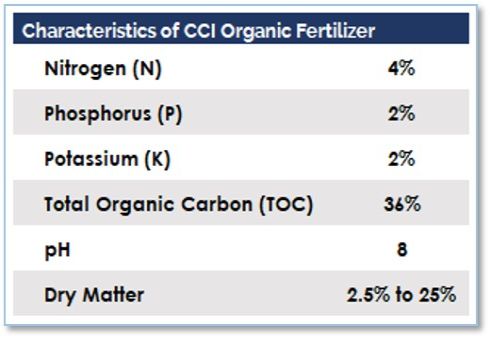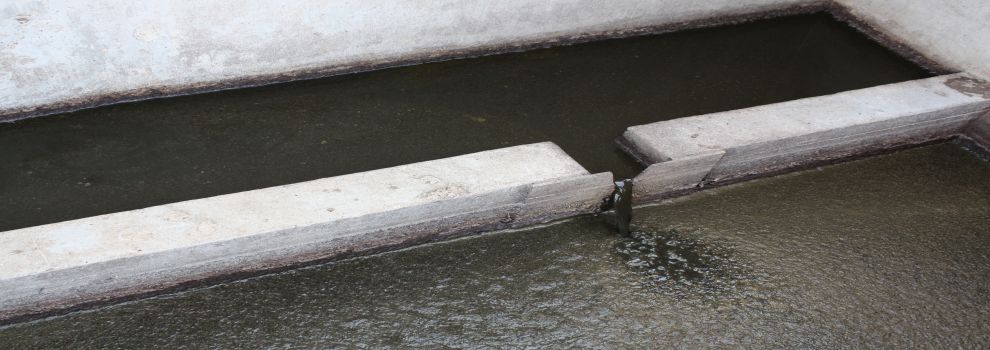Additional to BioGas, ClimeCo International's A+ BioGas Production plants produce a continuous flow of stabilized nutrient-rich liquids. This so-called digestate - a bi-product of the anaerobic digestion process - is free of odors & pathogens and contains highly valuable nutrients.
BioGas Digestate: Nutrient-rich, organic fertilizer The digested organics from CCI's BioGas plants contain an excellent combination of key plant nutrients, especially Nitrogen (4%), Phosphorus (2%) & Potassium (2%). In combination with a pH of 8, this excellent N:P:K ratio allows the plant roots to absorb the nutrients better & faster. The liquidity of the digestate can be controlled between 2.5% and 25% to adapt to individual storage, transportation & application requirements. |
 |
Better than Synthetic Fertilizer: Higher Nutrient Absorption Rates
The specific combination of nutrients and their natural (non-synthetic) origin significantly increase their absorbtion rate. As a consequence plant roots can access the nutrients in the organic fertilizer easier and faster than in synthetic fertilizer.
Better Water Retention: 30% Lower Irrigation Cost
Due to the digestate's high content of Total Organic Carbon (TOC), soils treated with the digestate retain higher amounts of water per m3 over longer periods of time. Treated soils require less irrigation during dry periods, reducing irrigation cost by 30%.
Ideal Combination: Digestate with EFB Composting
Fresh digestate from CCI's BioGas plants can be added to the composting of Empty Fruit Bunches (EFB). The digestate increases composting velocity, reducing energy consumption by the turning machinery, surface area & production cost per m3 of compost and increasing the viability of compost production.
Digestate + Compost: 30% Less Synthetics, 30% Less Cost
Synthetic fertilizer is a key cost factor in palm plantations & palm fruit production.
The combination of digestate with composted EFB replaces up to 30% of this synthetic fertiziler, significantly reducing the production cost per TFF.
Carbon Footprint: Significant Reduction
The industrial production of synthetic fertilizer creates massive emissions of Greenhouse Gases (primarily N2O emissions), primarily at the fertilizer production facility.
Replacing 30% of the synthetic fertilizer in a palm plantation therefore reduces the carbon footprint of palm fruit & palm oil production significantly and increases the potential for carbon offsets.



